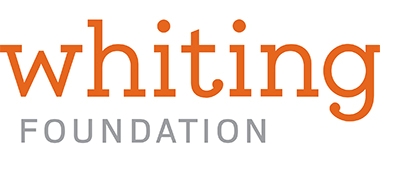The Humanities Program in the J. William Fulbright College of Arts and Sciences invites proposals from faculty in traditional humanities departments who embrace public engagement as part of the scholarly vocation.
As a participating institution, the U of A may nominate two prospective fellows: one for the fellowship and one for the seed grant. To be eligible for either program, nominees must have been full-time humanities faculty for at least two academic years as of September 2019; and pre-tenure, untenured, or have received tenure in the last five years.
The Public Engagement Fellowship of $50,000 is for projects far enough into development or execution to present specific, compelling evidence that they will successfully engage the intended public. For the strongest fellowship proposals, both the overall strategy and the practical plan to implement the project will be deeply developed, relationships with key collaborators will be in place, and connections with the intended public will have been cultivated. In some cases, the nominee and collaborators may have tested the idea in a pilot, or the project itself may already be underway.
The Public Engagement Seed Grant of up to $10,000 supports projects at a somewhat earlier stage of development than the fellowship, before the nominee has been able to establish a specific track record of success for the proposed public-facing work. It is not, however, designed for projects starting entirely from scratch: nominees should have fleshed out a compelling vision, including a clear sense of whose collaboration will be required and the ultimate scope and outcomes. They should also have articulated specific short-term next steps required to advance the project and understand the resources required to complete them.
Categories of proposals funded in the past by the Whiting Foundation include:
- Public programming projects like exhibits, public conversations, or walking tours
- Community-engagement projects involving members of the a defined public as co-creators
- K-12-focused projects, including the development of classroom resources
- Audiovisual projects, including podcasts, apps, and films.
Proposals (not to exceed three single-spaced pages) should include discussion of the folllowing:
- Project precis: Indicate whether you wish to apply for the fellowship or the seed grant. Provide a summary of your proposed project, indicating the subject matter, the form it will take, and your desired outcomes. In addition, indicate the project's current status and, if applicable, describe any work already completed.
- Intended public and plan for outreach: Identify the segment of the public you intend to engage through your fellowship project and describe your plan to ensure that you reach them. Be sure to make clear, in language compelling to a non-specialist, why the project will be engaging to the public you have chosen. Bear in mind the difficulty of capturing attention in our media-saturated world; we are looking for evidence not just that your project will be available to a public but that they will be move to participate in and be affected by it.
- Technical skills: Any public-facing project draws not only on the intellectual acumen and subject-matter expertise that will be clear from your CV but also on the skills less obviously associated with traditional academic work. Please communicate the technical skills you possess to make your project successful.
- Use of funds: Provide a draft budget of how you would spend a project cost stipend of up to $10,000. Also list other sources of funding already secured, if applicable.
- Biographical highlights: If you have experience relevant to your fellowship project that is not included or fully described on your CV, please elaborate.
- Two-page CV and relevant bibliography (if appropriate) of two pages or less to your proposal.
Proposals are due by 5 p.m. Friday, May 9, to Kathryn A. Sloan, director of the humanities program, whose email is ksloan@uark.edu. Applicants should express their intent to apply to Sloan by April 1.
For more information about the grants and the national selection process and criteria, please see Guidelines.
For a list of current Whiting fellows and their projects, see Fellowship and Seed Grant. Internal nominees will be notified by June 1.
Contacts
Kathryn Ann Sloan, director
Humanities Program
479-575-5887,
